Reptiles, amphibians and fish -> occurs
What is Occurs?
Occurring is a term used to describe an event or phenomenon that takes place or happens. In the context of science, occurrences can refer to a wide range of natural or man-made events, such as chemical reactions, weather phenomena, or biological processes.
Study Guide
Here are some key points to understand about occurrences in science:
- Natural Occurrences: Many scientific processes and events occur naturally in the environment, such as the water cycle, the life cycle of plants and animals, and the formation of minerals.
- Man-Made Occurrences: Some occurrences are the result of human activities, such as industrial processes, technological advancements, and pollution.
- Patterns of Occurrences: Scientists often study the patterns and frequencies of occurrences to understand underlying principles and make predictions about future events.
- Occurrence in Experiments: In scientific experiments, occurrences are often observed, measured, and analyzed to draw conclusions and make inferences about the natural world.
- Impact of Occurrences: Many occurrences have a direct or indirect impact on the environment, living organisms, and human societies, making them important subjects of scientific study and research.
Understanding occurrences in science involves observing, describing, and explaining the events and processes that shape the world around us. By studying occurrences, scientists can gain insights into the fundamental workings of nature and develop solutions to various challenges faced by society.
.◂Science Worksheets and Study Guides Second Grade. Reptiles, amphibians and fish
Study Guide Reptiles, amphibians and fish
Reptiles, amphibians and fish  Activity Lesson
Activity Lesson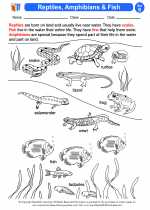 Reptiles, Amphibians & Fish
Reptiles, Amphibians & Fish  Worksheet/Answer key
Worksheet/Answer key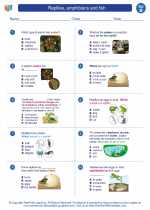 Reptiles, amphibians and fish
Reptiles, amphibians and fish  Worksheet/Answer key
Worksheet/Answer key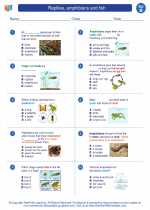 Reptiles, amphibians and fish
Reptiles, amphibians and fish  Worksheet/Answer key
Worksheet/Answer key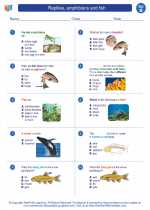 Reptiles, amphibians and fish
Reptiles, amphibians and fish  Worksheet/Answer key
Worksheet/Answer key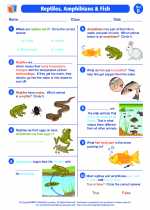 Reptiles, Amphibians and Fish
Reptiles, Amphibians and Fish  Vocabulary/Answer key
Vocabulary/Answer key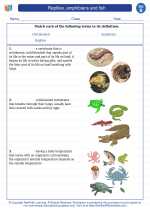 Reptiles, amphibians and fish
Reptiles, amphibians and fish 

 Activity Lesson
Activity Lesson
 Worksheet/Answer key
Worksheet/Answer key
 Worksheet/Answer key
Worksheet/Answer key
 Worksheet/Answer key
Worksheet/Answer key
 Worksheet/Answer key
Worksheet/Answer key
 Vocabulary/Answer key
Vocabulary/Answer key

The resources above cover the following skills:
LIFE SCIENCE (NGSS)
Ecosystems: Interactions, Energy, and Dynamics
Students who demonstrate understanding can:
Plan and conduct an investigation to determine if plants need sunlight and water to grow.